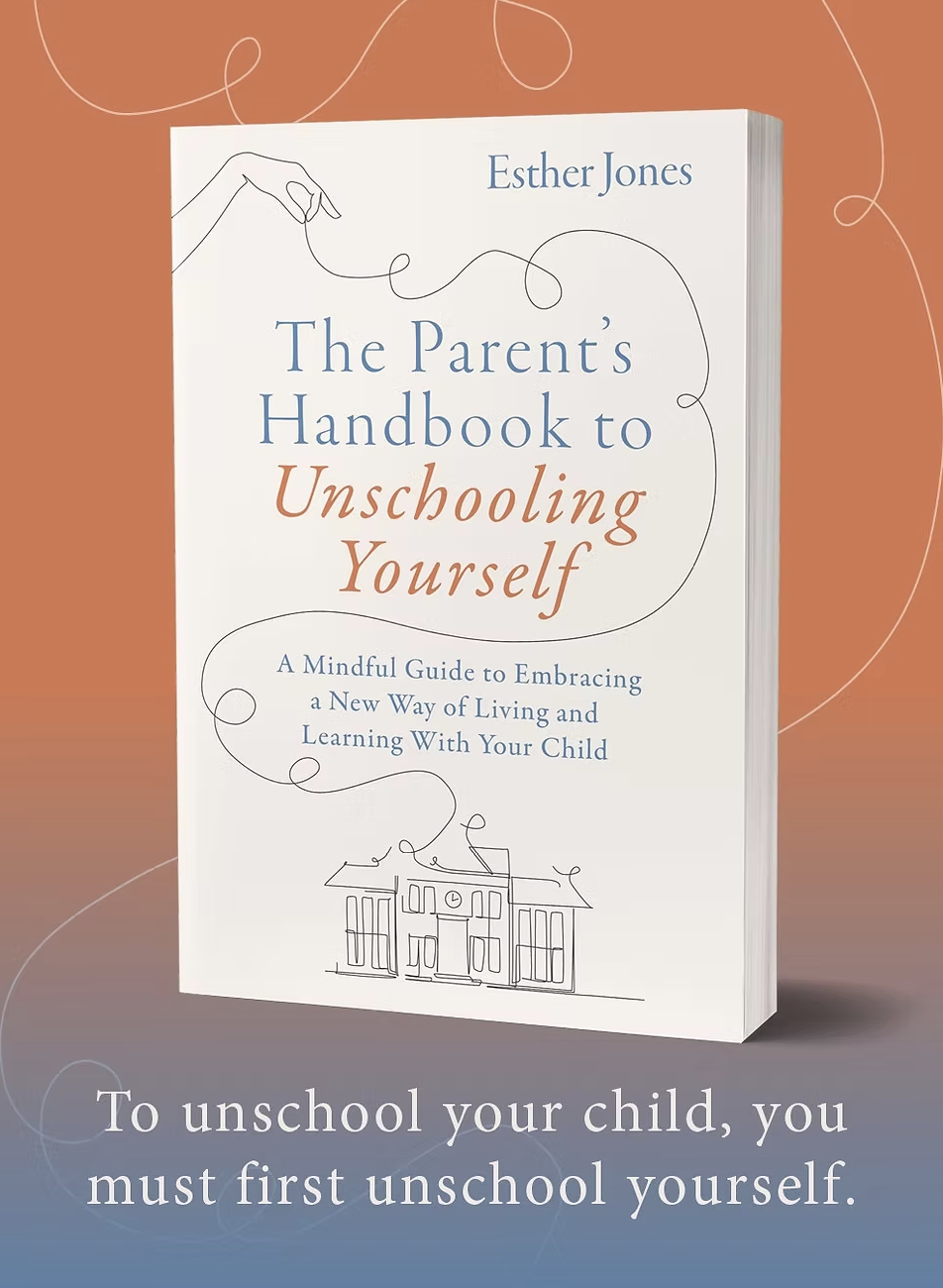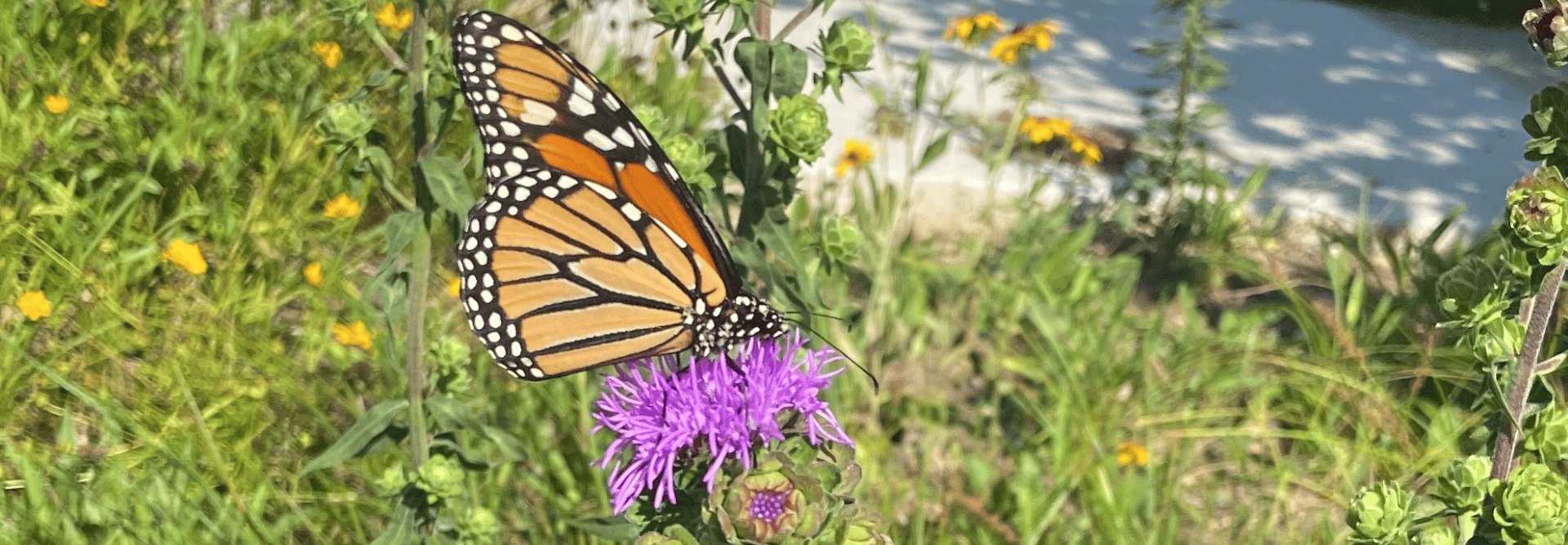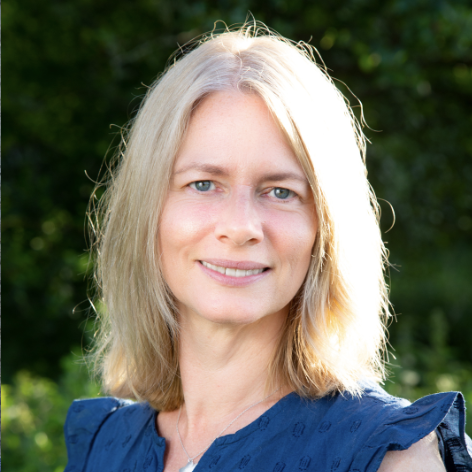Unschooling can feel both immensely liberating and also like stepping off a big cliff with a blindfold on. I remember how, during our first year, I would often be caught off-guard by anxious thoughts. Sometimes they were triggered by a comment from a friend or relative. Sometimes they were triggered by a random thought of my own. And often they were triggered by the choices my children made and the things they did, because they just didn’t look how I had imagined they would look. It was a rollercoaster ride.
I knew the theory and I wanted to wholeheartedly embrace this new way of life. I had read Peter Gray and several of John Holt’s works, enthusiastically highlighting things in yellow, and sharing them excitedly with my partner. I journalled about it all in the early mornings and pondered it on long walks. I wanted nothing more than to live a life of connection and natural learning with my children. And yet, when one of those triggering moments happened, all the theory went out of the window as my nervous system was hijacked by old patterns and beliefs. Sometimes this felt like a rising panic (“But what about maths?!!”), and other times it was a gnawing discomfort that perhaps this was not enough, that we needed to do more.
During those uncomfortable times, I would generally reach what felt like the only possible conclusion — that this wasn’t working. I would reprimand myself for not getting things right, I would worry about my children and why they were choosing gaming over building dens in the garden, and I would catastrophise about the future. More often than not, in an unwitting attempt to soothe my own nervous system, I would try to fix things. This looked like making unwelcome suggestions to do things I thought were of value, inventing ways to sneak some “learning” in, or getting overly enthusiastic about a simple question and boring them all to tears with an answer they weren’t interested in. My reactions would often do little more than suck the joy and connection out of the room.
It isn’t until we step away from mainstream education and parenting that we realise how deep our conditioning goes. Not only did we most likely go to school ourselves, but we probably spent most of adulthood assuming that our own children would go through the system just like we did. An enlightened few may have already done the groundwork before their children were born, but the rest of us are likely to have several decades of social conditioning to unravel when we step off the beaten track. And, of course, we soon realise that unraveling our beliefs around learning is just one small part of this. We have conditioned beliefs around rest and play, what success looks like, what it means to be of value, what people think of us — consider any aspect of life and you probably have some views on how you think it “should” look.
And so, it took me a little while to understand that those uncomfortable moments were generally not about my children at all. They were about me. And it took me a little while longer to understand that not only are they a normal part of every parent’s deschooling journey, but they are in fact the most important part of it. Because happy unschooling is not about getting everything right but about delving into those tricky moments — not trying to change them and not wishing they weren’t happening, but noticing them and getting curious. Because every time we feel that familiar tension or anxiety, or we’re overcome by the desire to swoop in and take control, we can be sure that our children have lit up some old story of our own. And most of us have a lot of old stories.
One of my own stories for example was the belief that we need to be busy and productive to be of value. It was extremely challenging for me to let go of the idea that a successful day was a busy day, and instead notice and respect my children’s rhythms, particularly when lazy days at home made me feel like a neglectful parent. That would all dovetail neatly into another of my stories which was a need to be approved of, and I was painfully aware that few adults would approve of my children’s mornings in pyjamas “doing nothing”.
Most of us have a lot to unravel and, if we can pay attention, our children will keep guiding us to the piece we need to take a closer look at. I often think of deschooling as mindfulness in action. We are continually required to lay our expectations (and all those “shoulds”) aside, to stop trying to make things look a certain way, and instead come back to the present moment, no matter how hard it is. And, if we are able to take a deep breath, accept what is and stay with that challenging moment, we discover that this awkward space is where the heart of unschooling is.
It takes time and practice for our nervous system to catch up with our thinking brain, and the only way to practise is to keep using the discomfort as the way forward. Here is where having some tools and strategies is extremely helpful — mindfulness and self-compassion practices are particularly good for guiding us through the triggers as they help us soothe the nervous system, whilst also giving us a little space to see the trigger more clearly. Over time, as we respond differently to situations and to our own worries, we naturally build more trust in the process, in our children and in ourselves.
When I stopped trying to make things go a certain way, I found that they often landed in new, wonderful and entirely unpredictable ways. When I was able to relax and sink into those lazy mornings, not only did life feel far more connected and joyful, but I also realised that my fears were unfounded. The learning never stopped — it was just that I hadn’t been seeing it because I was looking elsewhere. And when I realised that I no longer cared if someone else would approve or not, I felt huge gratitude to my children for guiding me to look for a deeper confidence.
I also realised that everything has value: the boredom, the sibling arguments, the things our children love but we don’t understand. When we stop looking for specific outcomes to soothe our worries, we see that the value is in the process itself. Everything is an invitation to examine our own beliefs and to understand more about our children, to help them learn how to hold tricky emotions or to give them space to explore how they feel and how they would like things to unfold. Nothing is wrong and nothing is a waste of time.
There is a piece of wisdom I’ve come across online that states that for a child to deschool, they need a month for every year they had attended school. That all sounds a bit too neat and I’m sure every child is completely different, but there is no doubt that the process is far quicker for the child than the parent. Most parents I’ve spoken to and worked with will happily tell you that their deschooling journey is never-ending, that they continue to bump up against new edges. And they will also tell you that not only has deschooling been the most challenging thing they ever did, but also the most fulfilling and life-affirming. Because only when we stop resisting and we allow that unraveling to take place can we truly see, appreciate and hold what is there. In the wise words of Zen monk Thich Nhat Hahn, “The way out is in.”

The Parent’s Handbook to Unschooling Yourself is available to preorder. It can be preordered wherever you buy books or directly from the publisher on either their UK site or their US site, with the code %UNSCHOOL20 for a 20% discount.
To find out more about Esther’s work and her upcoming Mindful Deschooling courses, visit www.esther-jones.com.
If you enjoyed this article and feel called to give back to ASDE, here are ways you can support our work:
- Donate money
- Share our content with others! Click one of the buttons above to easily share on Twitter, Facebook, or email.
- Consider becoming a Contributor for Tipping Points
Tipping Points Magazine amplifies the diverse voices within the Self-Directed Education movement. The views expressed in our content belong solely to the author(s). The Alliance for Self-Directed Education disclaims responsibility for any interpretation or application of the information provided. Engage in dialogue by reaching out to the author(s) directly.






